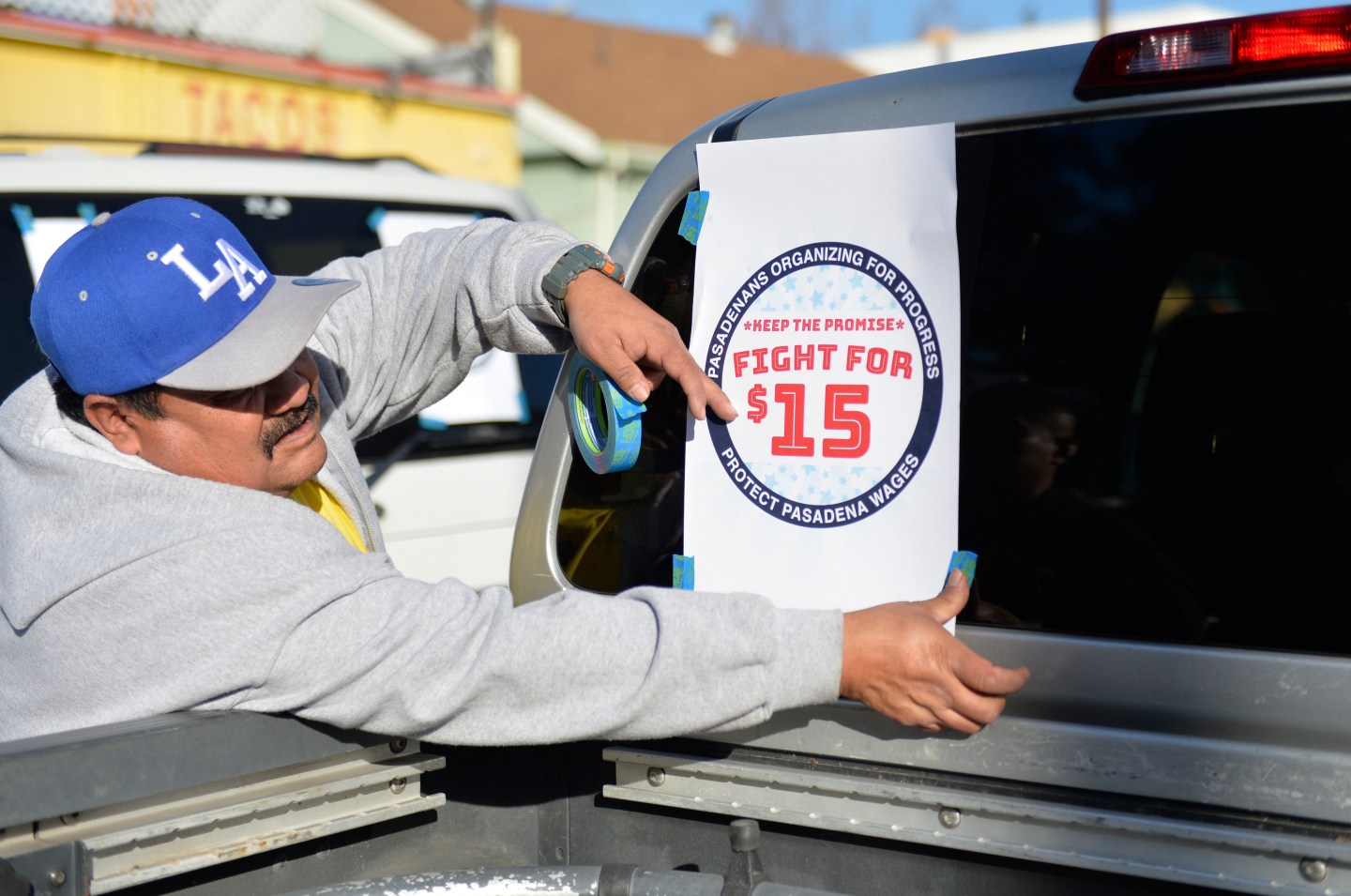President Biden recently announced the much anticipated details of his expansive coronavirus relief proposal, the “American Rescue Plan.” This $1.9 trillion plan is full of ambitious and much-needed government spending, but one of the most effective pieces of economic stimulus in the package is actually one that won’t cost the government a dime: raising the minimum wage.
Biden’s stimulus plan pulls directly from the Raise the Wage Act, which passed the U.S. House with almost unanimous Democratic support in 2019 and was recently reintroduced in Congress. This bill would lift the federal minimum wage to $15 an hour over the next several years while also phasing out the subminimum wage for tipped workers.
The President’s prioritization of this issue is a clear sign that the new administration understands how our economy actually works and is willing to make bold moves to fix what’s broken. A major piece of what’s currently broken is a lack of consumer spending. With people afraid or unable to go shopping, the customer base for businesses around the country has plummeted. Retail sales fell for the third month in a row in December, leading to more people losing their jobs, which will lead to worse retail sales—as the people who are losing their jobs won’t be spending as much.
We’re living through a very acute crisis, but there’s another, much longer-term crisis that we’ve been ignoring for years: A significant percentage of our population earns so little money that they’re not able to participate in our consumer economy in any meaningful way.
(Read: “I’m a McDonald’s worker who was homeless due to low pay. It’s time for a $15 minimum wage.”)
According to a study from the Federal Reserve Board, about 40% of Americans report not being able to afford an unexpected $400 expense. Not coincidentally, the National Employment Law Project found that over 40% of Americans earn less than $15 an hour.
How much do you think someone who can’t afford housing or groceries is going to be spending at local businesses or restaurants? How much is a person who couldn’t scrape together $400 in an emergency going to be contributing to the local economy? That’s why raising the minimum wage is about so much more than just helping poor workers—it’s one of the greatest long-term economic stimulus plans we have available. It’s a win-win for workers and businesses alike.
I’m an investor with millions of dollars invested in a variety of publicly traded businesses. As an investor, I only make money when the businesses that I’ve invested in make money. For the most part, the businesses I’m invested in sell things to consumers. In fact, nearly 70% of our economy is based directly on consumer demand, according to the Federal Reserve. It’s obviously in my interest to make sure each of the businesses in which I own a stake has as wide and as prosperous a consumer base as possible.
The business owners who are convinced they can’t afford to pay their workers higher wages are missing an entire half of the equation. If you own a bar, you should be a lot more concerned about how much money the 50 people in the bar have in their pockets than how much you have to pay the one bartender who is serving them. Yes, expenses may go up, but so do earnings. And on a macro scale, giving a significant portion of the working population a raise means almost every business ends up better off.
If we want to pull our economy out of its downward spiral, we need to increase consumer spending. There’s no better way to do that than to put more money into the hands of the people who are most likely to spend it immediately: low-wage workers. It’s one of the best economic stimulus tools we have available to us, and the Biden administration was right to include it in its stimulus proposal. Everyone, from hamburger flippers to hedge fund managers, should be hoping that this piece of the Biden plan makes it through Congress.
Morris Pearl is chair of the Patriotic Millionaires and former managing director at BlackRock. He is the author of Tax the Rich: How Lies, Loopholes, and Lobbyists Make the Rich Even Richer, to be published on April 13.












